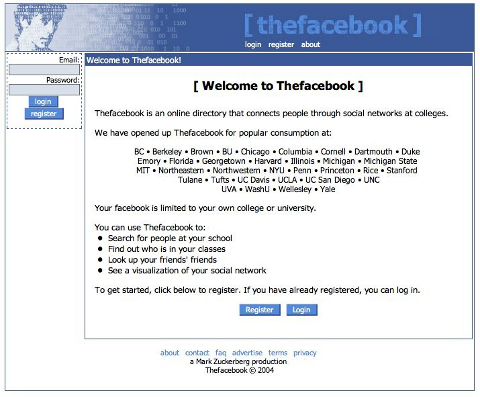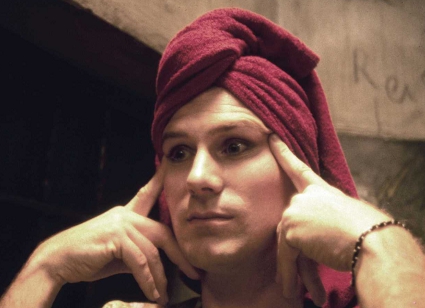Remember Friedrich Franz III No More
Less than two weeks after she became the world's oldest person, Dina Manfredini died Monday at the age of 115 years and 257 days. Manfredini had been living at the Bishop Drumm Retirement Center in Johnston, Iowa.
Born in Pievepelago, Italy, on April 4, 1897, Manfredini became the oldest Italian and oldest immigrant who ever lived. She emigrated from Italy to Des Moines, Iowa, in 1920 with her husband Riccardo and raised four children, working at an ammunition factory during World War II and cleaning houses until she was 90. She lied about her age so people would still hire her. "I'm old, old lady, but I work. Work hard. I like work," she told the Des Moines Register in 2004 when she moved to a nursing home for the first time.
The newest oldest person, the Japanese man Jiroemon Kimura, was born 15 days after her on April 19, 1897.
With such a short jump forward, the line of oblivion doesn't gobble up much living history. But there's no longer a person who could have seen the UFO that reportedly crashed in Aurora, Texas, on April 17, 1897, northwest of Fort Worth, leaving behind the body of an extra-terrestrial pilot. An article in the Dallas Morning News two days later recounted the event:
It sailed directly over the public square, and when it reached the north part of town collided with Judge Proctor's windmill and went into pieces with a terrific explosion, scattering debris over several acres of ground, wrecking the windmill and water tank and destroying the judge's flower garden.
The pilot of the ship is supposed to have been the only one on board, and while his remains are badly disfigured, enough of the original has been picked up to show that he was not an inhabitant of this world.
Mr. T. J. Weems, the United States signal service officer at this place and an authority on astronomy, gives it as his opinion that he was a native of planet Mars.
There's also no one who could have known Friedrich Franz III, the second-to-last grand duke of Mecklenburg-Schwerin in Germany. The grand duke's death on April 10, 1897, was a subject of some confusion at the New York Times, as evidenced by these headlines: "The Grand Duke of Mecklenburg-Schwerin Shown to Have Committed Suicide" (April 13) and "The Grand Duke of Mecklenburg Schwerin Did Not Commit Suicide" (April 15).
Review: 'Kiss of the Spider Woman'
I just finished reading Kiss of the Spider Woman, the 1976 Manuel Puig novel that became a terrific 1985 film. William Hurt won an Oscar playing Molina, a gay window dresser sharing a prison cell with Valentin, a straight Marxist revolutionary played by Raul Julia. To pass the time, Molina retells his favorite movies to Valentin.
The book held my interest but was difficult to read because of the experimental fiction techniques used by Puig. Most of the book is told through dialogue between the two men but the identity of the current speaker is never provided. Instead, an em-dash marks where a new person has begun to talk, as in this passage:
--She goes to the kitchen and makes toast with butter, and that crunchy cereal they have up there, and ...
--Don't talk about food.
--And pancakes ...
--Really, I'm serious about it. No food and no naked girls.
--Okay, so she wakes him up and he's happy to see her so comfortable in his home and he asks her if she wants to stay and live there forever.
You're never told who the speakers are. Instead, you learn gradually about the two men and the reasons for their imprisonment. The majority of the dialogue is devoted to Molina retelling movies at great length, but Valentin interrupts and the men occasionally talk about themselves. The funniest parts of the book are where the super-serious Marxist gives running commentary on films that would never appeal to him, each a tragic romance with a glorious leading lady in fabulous attire.
The rest of the novel consist of official transcripts of conversations between Molina and the warden, surveillance reports on one of the men after his release, weird academic footnotes regarding the psychology of homosexuality and an awesome stream of consciousness that goes on for six pages without a single verb:
--a European woman, a bright woman, a beautiful woman, an educated woman, a woman with a knowledge of international politics, a woman with a knowledge of Marxism, a woman with whom it isn't necessary to explain it all from A to Z, a woman who knows how to stimulate a man's thinking with an intelligent question, a woman of unbribable integrity, a woman of impeccable taste, a woman of discreet but elegant dress ... a woman who understands the problems of a Latin American, a European woman who admires a Latin American revolutionary ...
The passage reminded me of a song by the alternative band Cake: "I want a girl with a short skirt and a long jacket."
Boot Device Not Found, Brain Also Missing
My desktop PC, an HP Pavilion p6000, crashed this morning and won't boot successfully, displaying an ominous "Boot Device Not Found" error instead. This used to be the kind of situation that would send me into a fetal position mumbling "why didn't I make a backup?" over and over to myself.
But a few years ago, I burned to CD a free copy of Knoppix, a stripped-down version of Linux, that can be used in an emergency like this. I booted the computer off this CD and found all of my files are still accessible. Even if you don't know anything about Linux, it's easy to figure out how to copy all the files off a drive onto another media such as an external USB drive.
So that's what I'm doing, copying 1.7 terabytes of files while I use an Apple iPad to research why my Windows 7 PC has forsaken me. Apparently the master boot record has become corrupted, a problem that's easily fixable with a Windows System Recovery Disk.
Why didn't I make a System Recovery Disk?
Update: I was able to choose and start Windows 7 manually by hitting Esc and F10 during boot up to run the BIOS setup program. A corrupted master boot record (MBR) was the problem. When I used BIOS setup to change a setting and save it, the MBR was fixed and the PC now boots normally.
Times Responds to Roger Cohen's Mistake
I sent New York Times public editor Margaret Sullivan an email yesterday describing how Roger Cohen borrowed quotes in his recent column on oversharing. She got back to me today letting me know that this editor's note was added to the column:
In this column, the author suggested that he was moved to talk about over-sharing and anxiety online after he came across two comments on Twitter. In fact, both comments were taken from a Web site, overshare.com, that the writer consulted as part of his research. One of the comments, from Claire, was from a Twitter feed; the other, from Deanna, was from Facebook. They were both written in 2010. The writer should not have implied he stumbled across them while reading recent Twitter feeds.
This situation feels like a triumphant scream is required.
By the power of Grayskull, I have the power!
Times Columnist Roger Cohen Borrows Quotes
The New York Times columnist Roger Cohen engages in some ethically questionable journalism in his column Thursday about people sharing too much on Facebook and Twitter.
In his commentary, Cohen shares this lament:
Now I was determined to get through 2012 without doing a peevish column ... but everyone has a tipping point. Mine occurred when I came across this tweet from Claire:
"Have such a volcanically deep zit laying roots in my chin that it feels like someone hit me with a right cross."
Good to know, Claire.
I was just recovering from that when I found Deanna tweeting that she had "picked up pet food" and was heading to "the dreaded consult on colon stuff. The joys of turning 50." As for Kate she let the world know the status of her labor: "Contractions 3 minutes apart and dilated at 2 cm."
Social media does not mean that you have to be that social.
Cohen makes it sound as if these are people he interacts with on Twitter and Facebook, but it's far more likely that he found them on Oversharers.Com, a site that's the top Google search result for the term "oversharing." The quotes from Claire and Deanna are the first and third entries on the second page of the site's archive. The zit tweet was something Claire shared with her followers in February 2010. Deanna's "colon stuff" status update, which Cohen incorrectly calls a tweet, was posted to her Facebook friends no later than July 2010, if the date on Oversharers.Com post is correct.
He never credits Oversharers.Com as the source of these quotes. There was no "tipping point" that roused his inner curmudgeon about people sharing too much. He was fishing for examples to write a column around. More seriously from a journalistic standpoint, Cohen has no way of knowing if the Deanna quote is real. It's just a screen capture on a humor site with no link or full name of the author on Facebook. Someone could have made it up.
Regarding Cohen's premise that we're living in a too-much-information age, that's hard to argue.
But there's something obnoxiously elitist about a New York Times columnist ridiculing ordinary people for sharing observations about their lives on social networks to an audience of people who've specifically asked to receive them. Two years ago, Cohen used his column to share the text of a suicide note written by his mother:
That jolted me -- and sent me back to my mother's suicide note of July 25, 1978: "It's as though I've turned to stone. I can't relate, I can't communicate and I can no longer bear the pain and gloom I cause to those I love most. ... At present I am filled only with self-hate. I do love my family and dear friends but I can't go on and on like this."
My mother survived, just. But the bi-polar state that led her to try to take her life that day never entirely relaxed its grip.
What would Cohen have thought if he found something like that on a Facebook wall?
Update: The Times has acknowledged that Cohen made improper use of those quotes.
No Social Networking in 'The Social Network'

I saw the film The Social Network for the first time last night after letting it sit in a Netflix envelope on a dresser for 10 months. I'm losing the will to watch physical copies of movies. Too much work, like calling somebody on a rotary phone whose number has a lot of eights and nines.
The movie's great, but there's an interesting omission: None of the main characters is shown using Facebook to improve their social lives in any meaningful way.
Facebook founder Eduardo Saverin is depicted as not knowing how to use the site to change his relationship status, causing his overly attached girlfriend to go Burning Bed on him. President Sean Parker is shown with an extremely vibrant drug- and alcohol-fueled social life that needs no help from online friending.
Until the ending (which I won't spoil), the only time anyone puts Facebook to use is when founder Mark Zuckerberg creates a fake account to spur strangers to help him cheat on an art test at Harvard.
The movie touts the revolutionary nature of social networking repeatedly without any character doing anything of note with all those personal connections.
The World Already Has Enough Artists?
I maintain a list on Twitter of all Hugo Award-nominated best novel writers who use the service. A lot of cool stuff comes over the relatively low-traffic list, particularly related to science and creativity. At a Connecticut Forum event for high school students, the comics and science fiction writer Neil Gaiman was questioned by a teen who had been discouraged from being a director because there are "enough artists in the world."
Gaiman's answer is perfect.



